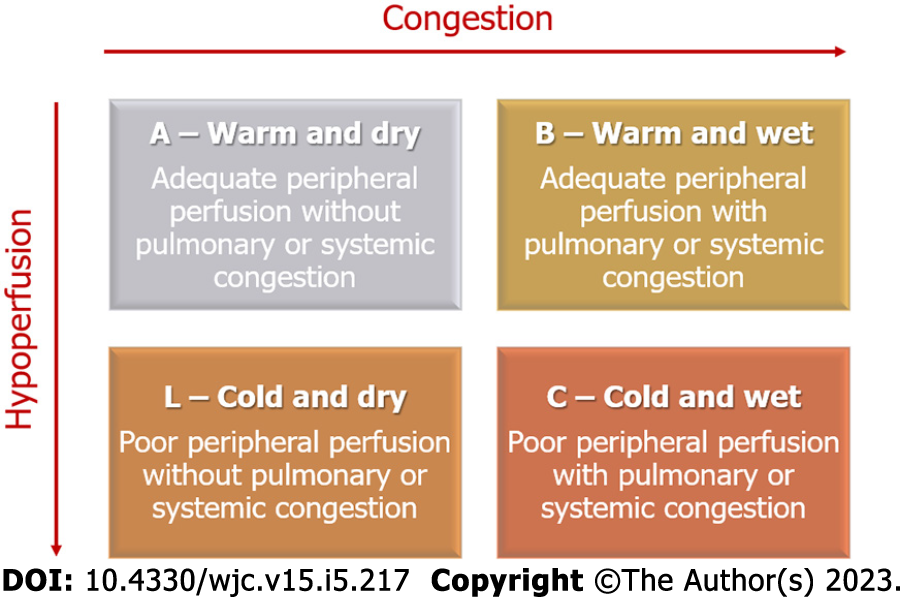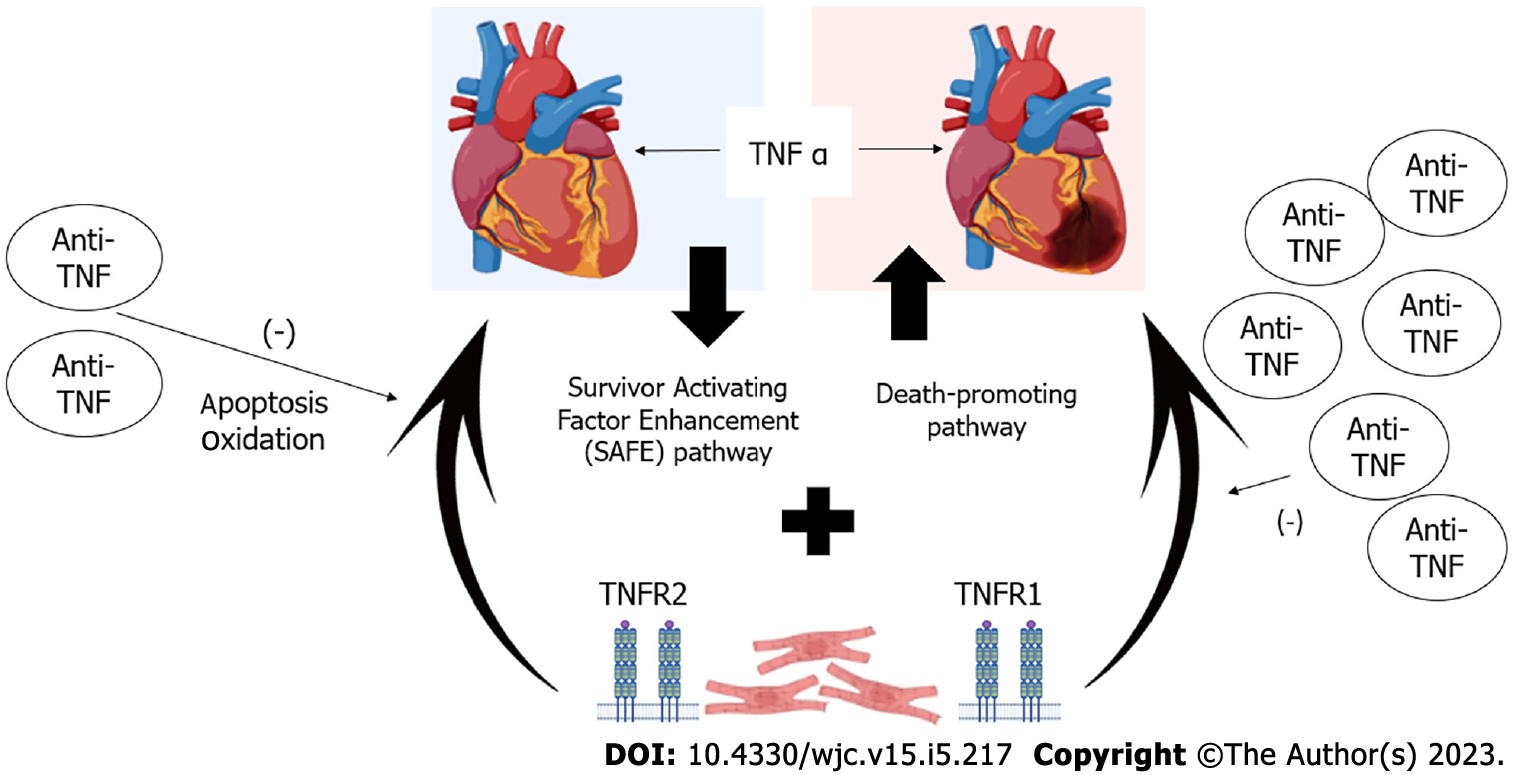Copyright
©The Author(s) 2023.
World J Cardiol. May 26, 2023; 15(5): 217-228
Published online May 26, 2023. doi: 10.4330/wjc.v15.i5.217
Published online May 26, 2023. doi: 10.4330/wjc.v15.i5.217
Figure 1 Clinical profiles of acute heart failure.
Patients with acute heart failure present differently at admission depending on the degree of congestion and hypoperfusion of the tissues. Such profile differentiation provides guided treatment with better outcomes.
Figure 2 Mechanisms of heart failure caused by the use of anti-tumor necrosis factor agents.
Tumor necrosis factor (TNF)-α is found in both healthy and damaged hearts and its effects are concentration dependent via two pathways: The survivor activating factor enhancement pathway working at low concentrations and the death-promoting pathway working at high concentrations. In addition to the concentration, its repercussion in the muscle depends on the receptor to which TNFα-1 (TNFR1) and -2 (TNFR2) binds, with the latter being cardioprotective. Thus, it is suggested that the development/worsening of heart failure in patients using anti-TNF is due to a suppression of the cardioprotective concentration of TNFα, making cardiomyocytes susceptible to apoptosis and oxidation or also to selective cytotoxicity.
- Citation: Grillo TG, Silveira CFDSMP, Quaglio AEV, Dutra RM, Baima JP, Bazan SGZ, Sassaki LY. Acute heart failure as an adverse event of tumor necrosis factor inhibitor therapy in inflammatory bowel disease: A review of the literature. World J Cardiol 2023; 15(5): 217-228
- URL: https://www.wjgnet.com/1949-8462/full/v15/i5/217.htm
- DOI: https://dx.doi.org/10.4330/wjc.v15.i5.217










